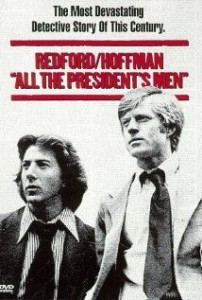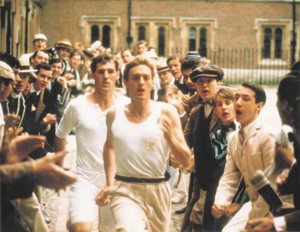The Chocolate War
Posted on December 13, 2002 at 5:17 am
Plot: While Jerry Renault (Ilan Mitchell-Smith) a freshman at Trinity Prep boy’s school, is belittled by the football coach, two boys, Archie (Wally Ward) and Orbie (Dough Hutchison) sit high up in the stands watching them. Archie determines the “assignments” to be given to those boys selected for the school’s elite club, the Vigils, and Orbie is the club secretary. Jerry, whose mother has recently died, is selected for an assignment.
At home, Jerry’s father is remote, still overcome by grief. In school, teacher Brother Leon (John Glover) is tough and imperious. He brutally berates an outstanding student, then tells him, “You passed the toughest test of all — you were true to yourself.”
Brother Leon tells Archie the boys have to sell 20,000 boxes of chocolates for their annual fund-raiser, twice the number from previous years, and at twice the price, to help ensure that he will become headmaster. He won’t refer to the Vigils by name, but acknowledges Archie’s “influence.” Each boy must sell 50 boxes. All of the other boys agree, but Jerry refuses. Brother Leon says that selling is voluntary (“that is the glory of Trinity”), but tells the class that “the true sons of Trinity can pick up your chocolates in the gym. The rest — I pity you.”
It turns out that refusing to sell the chocolate was the “assignment” given to Jerry to prove his worth to the Vigils. But after the time period of the assignment expires, he continues to refuse to participate, despite harassment by the other boys. It gives him a feeling of strength and independence, not just from Brother Leon, but from the Vigils as well. Brother Leon says that sales are poor because the boys have become “infected” by Jerry. Brother Leon tells Archie that “if the sale goes down the drain, you and the Vigils go down the drain. We all go down the drain together.”
The Vigils decide to make the chocolate sale a success by making it popular. “We make it cool to sell the things.” The head of the Vigils tells Archie his position depends on his making his plan work.
At last, all of the chocolates are sold, except for Jerry’s quota. Archie arranges an assembly, with a raffle, the prizes the chance to select the punches in a boxing match between Jerry and a tough boy named Janza. But Archie has to take Janza’s place, and Jerry beats him. Jerry says, “I should have just sold the chocolates, played their game anyway.” Archie is now secretary, and Orbie has taken over assignments for the Vigils.
Discussion: Mature teenagers, especially fans of the popular book by Robert Cormier, will appreciate this dark story, a kind of “Dangerous Liaisons” for teenagers. Archie says that “people are two things, greedy and cruel,” and devises his plans to take advantage of those qualities.
Although the story is exaggerated for satiric effect, much of it will seem true to teenagers, who often feel a heightened sense of proportion. The movie shows us some of Jerry’s dreams or fantasies, which add to the surreal and claustrophobic feeling of the movie.
The movie provides a good basis for a discussion of the different ways that people get other people to do what they want, the exercise of power, and the ways that power is maintained — and lost. The interaction between Brother Leon and Archie is especially interesting, because of their uneasy interdependence. As powerful as both of them seem, they ultimately lose their power without much of a struggle.
Questions for Kids:
· What are the tools that Archie uses to maintain and exercise power? What tools does Brother Leon use?
· How can anyone or any group decide to make something “popular” and “cool” as Archie does with the chocolate sale?
· Why does Archie tell Janza to “use the queer pitch” on Jerry?
· Why does the screenplay have Archie holding an impaled butterfly when he talks to Janza on the phone? Why does Jerry tell the girl she was right?
· What is the significance of the Vigil’s marble test for the person who gives the assignments?
Connections: Read the book by Robert Cormier, and his other popular novel, “I Am the Cheese” (filmed in 1983, and remade in Canada as “Lapse of Memory,” (also known as “Memoire Tranquee”) in 1992. Compare this story to other books and movies about power struggles in a school context, including “Perfect Harmony,” “Lord of the Flies,” “School Ties,” and, for mature high school and college students, “The Lords of Discipline” (rated R), the surrealistic “If…” (1968, rated R) and one of its inspirations, the French film “Zero for Conduct” (1933).


